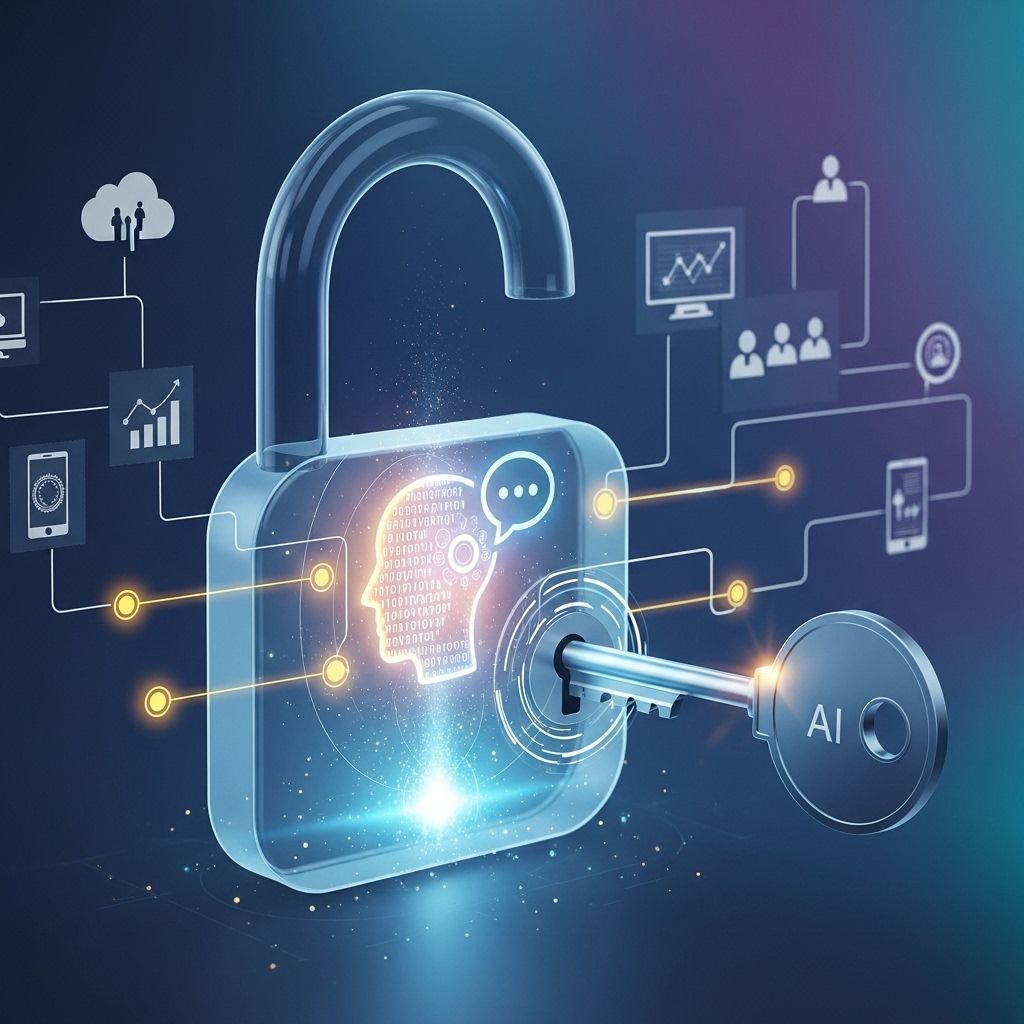Unlocking Customer Satisfaction with AI Chatbots in SaaS
Discover how AI chatbots enhance customer satisfaction in SaaS by providing instant support, improving communication, and driving engagement.

In the fast-evolving world of Software as a Service (SaaS), delivering exceptional customer service has become a crucial differentiator. As businesses strive to maintain competitive edges, the integration of Artificial Intelligence (AI) chatbots has emerged as a game-changing solution. These virtual assistants not only enhance customer satisfaction but also streamline operational efficiency, enabling companies to focus on innovation and growth. This article delves into the multifaceted advantages of AI chatbots within the SaaS industry, exploring their deployment, functionality, and the transformative impact they have on customer interactions.
Table of Contents
Understanding AI Chatbots
AI chatbots are sophisticated software applications designed to simulate human conversation. They leverage natural language processing (NLP), machine learning, and data analytics to understand and respond to user queries in real-time. By utilizing algorithms and vast amounts of data, these chatbots can deliver personalized experiences tailored to individual customer needs.
Types of AI Chatbots
- Rule-Based Chatbots: Operate based on predefined rules and respond to specific commands.
- Machine Learning Chatbots: Learn from interactions to improve their responses over time.
- Hybrid Chatbots: Combine features of both rule-based and machine learning chatbots for enhanced functionality.
The Role of AI Chatbots in Enhancing Customer Satisfaction
SaaS companies face unique challenges in maintaining high levels of customer satisfaction due to the complex nature of their services. AI chatbots can play a pivotal role in addressing these challenges through various mechanisms:
24/7 Availability
One of the most significant advantages of implementing AI chatbots is their ability to provide round-the-clock support. Unlike traditional customer service representatives, chatbots can operate continuously, ensuring that customers receive assistance whenever needed.
Personalization of Customer Interactions
AI chatbots can analyze customer data to deliver tailored recommendations and responses. This level of personalization is crucial in SaaS, where user requirements often vary significantly.
Efficiency in Handling Queries
Chatbots are capable of quickly handling a high volume of customer inquiries, which minimizes wait times and accelerates response rates. This efficiency not only improves user experience but also frees human agents to handle more complex issues.
Implementing AI Chatbots in the SaaS Space
Integrating AI chatbots into a SaaS platform requires a strategic approach. Here are some steps that businesses should consider:
- Identify Use Cases: Determine which customer interactions can be automated and where chatbots can add the most value.
- Select the Right Technology: Choose a chatbot platform that aligns with your specific needs and technical capabilities. Factors to consider include NLP capabilities, integration options, and scalability.
- Design Intuitive Conversations: Develop a flow for conversations that feels natural and user-friendly. This involves crafting responses that reflect the brand voice and style.
- Monitor and Optimize: Continuously analyze chatbot performance and customer feedback to make ongoing improvements.
Measuring Success: Key Performance Indicators (KPIs)
To understand the effectiveness of AI chatbots in enhancing customer satisfaction, SaaS businesses should track various KPIs:
| KPI | Description | Target Value |
|---|---|---|
| Response Time | Average time taken to respond to user queries | Under 5 seconds |
| Customer Satisfaction Score (CSAT) | Measures customer satisfaction after interacting with the chatbot | Above 80% |
| Resolution Rate | Percentage of queries resolved without human intervention | Over 70% |
| Engagement Rate | Proportion of users who engage with the chatbot | Above 50% |
Challenges and Considerations
While the benefits of AI chatbots in SaaS are evident, businesses must also navigate several challenges:
Data Privacy and Security
With the increasing concerns regarding data privacy, it is essential for SaaS providers to ensure that customer data is handled securely and in compliance with regulations such as GDPR.
Complex Customer Queries
Not all customer inquiries can be addressed by chatbots. It is vital to have a seamless transition process in place for issues that require human intervention.
Continuous Learning
AI chatbots need regular updates and training to adapt to changing customer needs and industry trends. This requires ongoing investment in technology and resources.
Future Trends in AI Chatbots for SaaS
The future of AI chatbots in the SaaS landscape is promising, with several trends likely to shape their evolution:
- Enhanced Natural Language Understanding: As NLP technology improves, chatbots will be able to understand context, sentiment, and nuances in human language more effectively.
- Integration with Other Technologies: AI chatbots will increasingly be integrated with other technologies such as voice recognition and augmented reality, allowing for a more interactive customer experience.
- Proactive Customer Engagement: Future chatbots will not only react to inquiries but will also reach out to customers proactively, offering assistance based on predictive analytics.
Conclusion
In conclusion, the integration of AI chatbots into the SaaS model represents a powerful strategy for enhancing customer satisfaction and operational efficiency. By providing instant support, personalizing interactions, and leveraging data-driven insights, these chatbots offer tremendous potential to transform how businesses engage with their customers. As technology continues to evolve, embracing AI chatbots will undoubtedly become a cornerstone of successful SaaS strategies, driving innovation and growth in the industry.
FAQ
What are AI chatbots and how do they work in SaaS?
AI chatbots are intelligent software applications that use natural language processing and machine learning to interact with users. In SaaS, they assist in automating customer support, providing instant responses, and enhancing user experience.
How can AI chatbots improve customer satisfaction in SaaS?
AI chatbots can improve customer satisfaction by offering 24/7 support, reducing response times, personalizing interactions, and efficiently handling common queries, allowing human agents to focus on more complex issues.
What features should I look for in a SaaS chatbot?
Key features to look for in a SaaS chatbot include natural language understanding, multi-channel support, integration capabilities with existing software, analytics for performance tracking, and customization options to fit your brand.
Are AI chatbots cost-effective for SaaS businesses?
Yes, AI chatbots can be cost-effective for SaaS businesses as they reduce operational costs by automating routine tasks, minimizing the need for large support teams, and increasing efficiency in customer interactions.
Can AI chatbots handle complex customer inquiries?
While AI chatbots are excellent for handling common queries, they can also be programmed to escalate complex issues to human agents, ensuring that customer needs are met effectively.
How do I measure the success of AI chatbots in my SaaS platform?
You can measure the success of AI chatbots by tracking key performance indicators such as customer satisfaction scores, response times, resolution rates, and overall engagement metrics.

